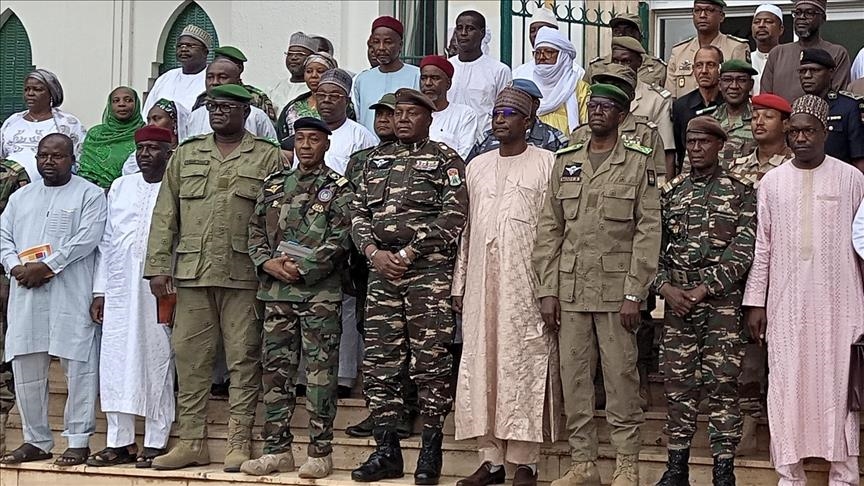INTERNATIONAL

NIGER JUNTA FORCED TO BEG NIGERIA FOR FUEL AS SELF-INFLICTED CRISIS PARALYZES THE NATION
For nearly two weeks, Niger Republic has been crippled by a devastating fuel crisis, bringing transportation and economic activities to a standstill. Long queues of desperate motorists stretched across major cities as businesses scrambled to secure even a few liters of petrol. The situation became so dire that the military junta, which had prided itself on rejecting external influence, was left with no choice but to seek help from Nigeria.
Despite months of diplomatic hostility and anti-Nigeria rhetoric, Niger’s rulers quietly dispatched their Minister of Petroleum and Renewable Energy, along with top officials from the Niger Petroleum Company (SONIDEP) to Abuja in a desperate bid for fuel supplies. In a move that reinforced its role as West Africa’s stabilizing force, Nigeria approved the immediate delivery of 300 fuel trucks across the border to ease the crisis.
The crisis was entirely self-inflicted. It stemmed from a confrontation between the ruling junta and Chinese oil companies, which have long dominated Niger’s petroleum sector. In March 2024, China National Petroleum Corporation (CNPC) had provided the Nigerien government with a $400 million advance, using future crude oil deliveries as collateral. The funds were meant to help the country weather the economic sanctions imposed by ECOWAS following the July 2023 coup. However, when repayment became due, the junta found itself short on cash and instead chose to strong-arm China by slapping an $80 billion tax demand on SORAZ, the Zinder Refinery Company, despite the fact that state-owned SONIDEP already owed SORAZ a staggering $250 billion. When China refused to provide additional financial aid, the junta retaliated by expelling Chinese oil executives and seizing the refinery’s bank accounts.
The consequences of this reckless move were immediate and severe. With Chinese expertise and funding pulled out, the SORAZ refinery—the backbone of Niger’s fuel supply—ceased operations, plunging the country into widespread shortages. The crisis deepened as the Niger-Benin oil pipeline, a critical project aimed at boosting crude exports, was also left in limbo due to the exodus of Chinese engineers. As fuel stations ran dry and black-market prices soared, economic activity across the country ground to a halt.
For weeks, the junta-controlled media remained silent, downplaying the crisis even as citizens struggled with skyrocketing fuel costs. But as frustration mounted and the reality of economic collapse loomed, the junta was forced to make an about-face. Despite its previous defiance against Nigeria and ECOWAS, it discreetly sent a delegation to Abuja, seeking an emergency supply of petrol. The irony was striking—this was the same military government that had severed ties with France, turned its back on Western allies, and aligned itself with Russia, yet when faced with national paralysis, it was Nigeria they turned to for salvation.
In a show of regional leadership, Nigeria approved the urgent release of 300 fuel trucks to Niger, helping to stabilize the situation. This decision came despite months of hostility from Niger’s rulers, who had previously dismissed Nigeria’s influence in West African affairs. The crisis underscores the fragile nature of Niger’s economy and its continued dependence on Nigeria, regardless of political tensions. While the junta may attempt to save face, the reality remains clear: when disaster struck, it was Nigeria that stepped in to prevent total economic collapse.
"This represents a significant development in our ongoing coverage of current events."— Editorial Board









